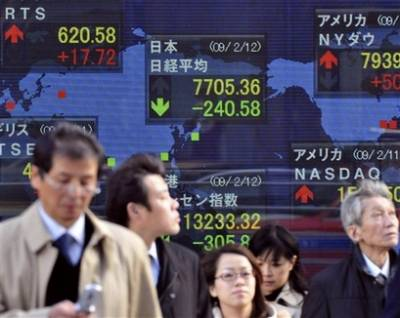This year and the next few to come have many worried.
Though few economists expect the nation’s current economic downturn to become the sequel to the Great Depression of the last century, today's recession is already longer than all but two of the downturns since World War II, according to the economic research bureau.
And, as many pro-lifers and conservatives feared, President Barack Obama is on track to becoming the most pro-abortion president in the history of the nation, starting first with the repeal of the Mexico City Policy, which prohibited funding for overseas abortion providers, and most recently with his plans to lift restrictions on taxpayer-funded research using embryonic stem cells.
Obama is also expected to eventually fulfill the promise he made to Planned Parenthood by signing the Freedom of Choice Act, which would abolish all restrictions and limitations on women in the United States to have an abortion prior to fetal viability, whether at the state or federal level, or after the point of viability when the life of the mother is endangered.
While most Americans can do little, if anything, to reverse today’s political and economic tides, there is much that can be done to change the cultural tide. And, as one prominent megachurch recently noted, real change doesn’t come from politicians and the changing of laws but from the Church and the changing of hearts.
“Everything else is going to burn up one day. Politics isn’t going to last. If I thought it was, I might be a politician,” Rick Warren, senior pastor of Saddleback Community Church in Lake Forest, Calif., noted last week at an event for church leaders.
“Politics is always downstream from culture. If you want to influence culture, you have to change hearts. And, you can’t change a heart with a law,” he added.
While politicians and political groups are certainly an integral part of society and may be working tirelessly to get the nation back on track – financially, morally, etc. – Warren emphasized the impact that pastors and lay Christians can have on the nation.
“One church, you drop a pebble in a pond and it doesn’t make much of a ripple. But, if you take 1,000 or 10,000 or 100,000 churches and drop them, and guess what? You’re going to get a big reaction,” he said during a general session at the Feb. 19-21 NEXT conference at Saddleback. “Each of us doing our part we can see a major spiritual awakening in our nation and in our world if we would be available to God.”
Even in the face of a recession or amid what many pro-life groups are seeing as an “assault on life” from the nation’s capital, Warren reminded believers of the hands that God has given them to reach out.
Laws passed to make abortions easier to obtain don’t have to lead to an increase in abortions if expectant mothers are informed and supported. And today’s recession doesn’t have to lead to depression. It could lead to revival, if believers make themselves available to God.
“We could see this recession turn into the greatest spiritual revival in our lifetime if we understand it,” Warren said.
“[B]ad times are actually good times for the church. People turn to Christ in a crisis. People are most open to the gospel when they’re in transition or under tension. Those are the two times that people are most open to Christ – when they are in transition and things are changing rapidly.”
Last year, nearly 2.6 million people in America lost their jobs. Last month, more than 650,000 lost their jobs – the first time job losses topped 600,000 for a third month in a row in government record-keeping dating to 1939.
The human carnage from the recession, well into its second year, now stands at 4.4 million lost jobs. And according to The Associated Press, some 12.5 million people are searching for work — more than the population of the entire state of Pennsylvania.
“The unemployment by the middle of next year will likely be the highest it’s ever been since the Depression,” noted Warren.
“I’m not saying this for doom and gloom, this is our opportunity,” he continued. “When people are hurting, they turn to the Lord. And, in a crisis, they start asking, how do I get connected? Nobody wants to go through a storm by themselves.”
So while the nation may be facing moral and economic crises, the Southern California pastor urged church leaders to rally believers to reach out to a hurting nation because that’s when they’re needed most.
“People don’t turn to Christ when things are going good. They turn to Christ when their mortgages are upside down, and they get laid off and things are getting tight. Read the book of Judges. Seven times. Every time Israel got profitable, they forgot God. God would allow a crisis to come in, and lay them low, and in that low, they turned back to God,” Warren noted.
“People are going to be more open, more receptive to the Good News in the next year and a half than in any other time in our lifetime. And, if we miss this, we have missed an incredible spiritual harvest,” he added.
Last month, the unemployment rate leapt to 8.1 percent from 7.6 percent in January, the highest in more than 25 years. Some economists now predict the rate could hit 10 percent by year-end and peak at 11 percent or higher by the middle of 2010.
















